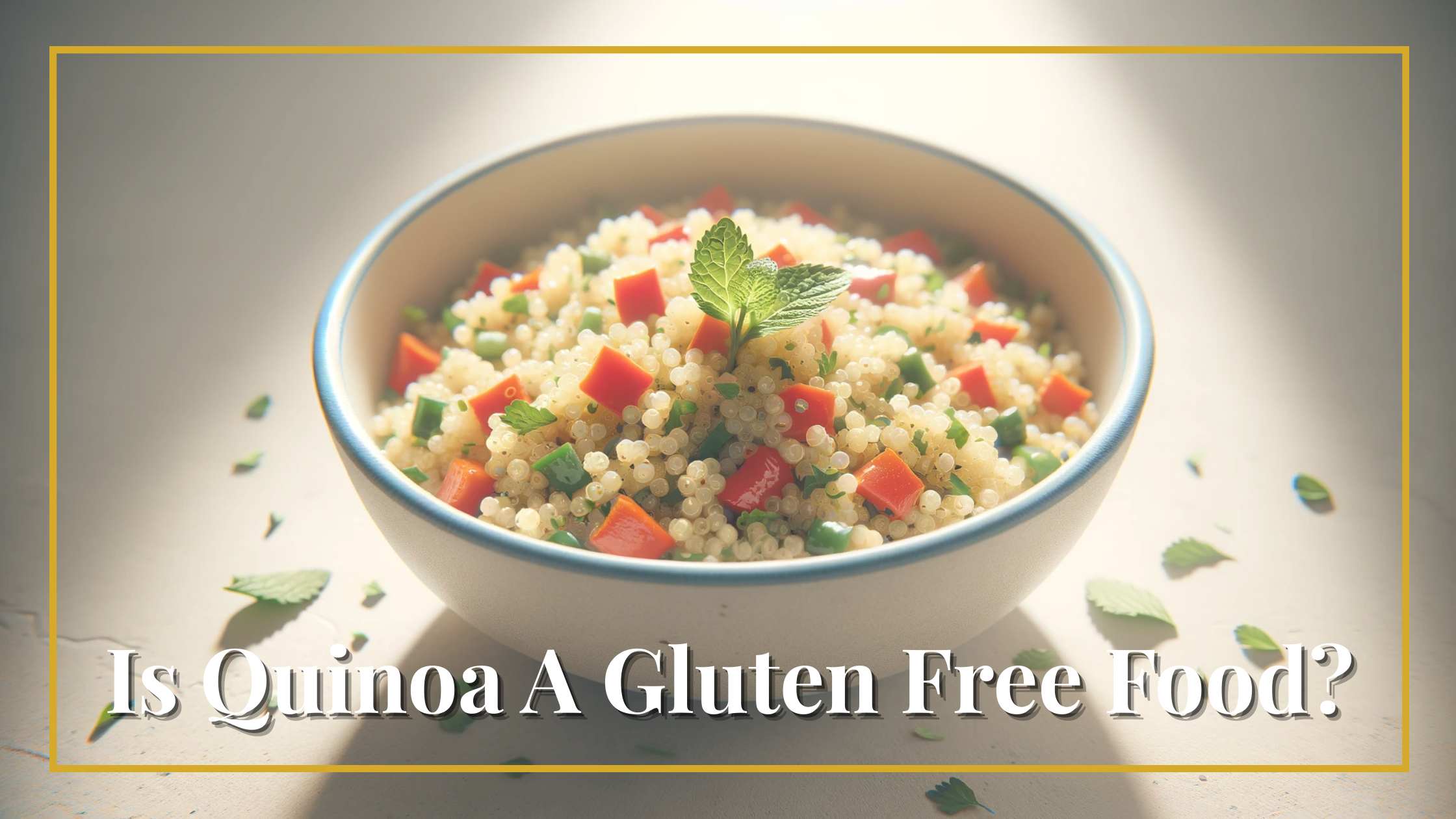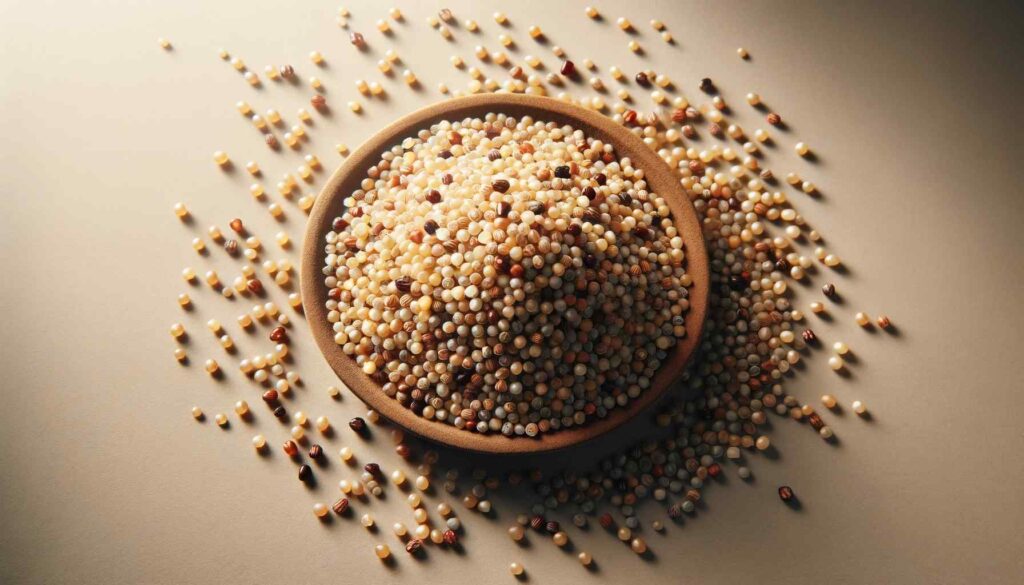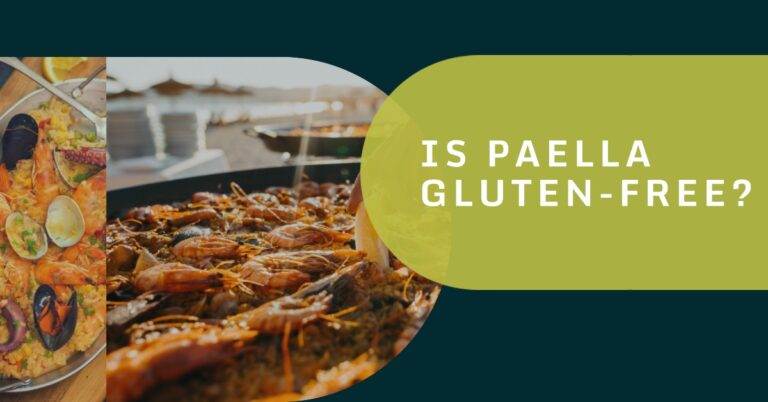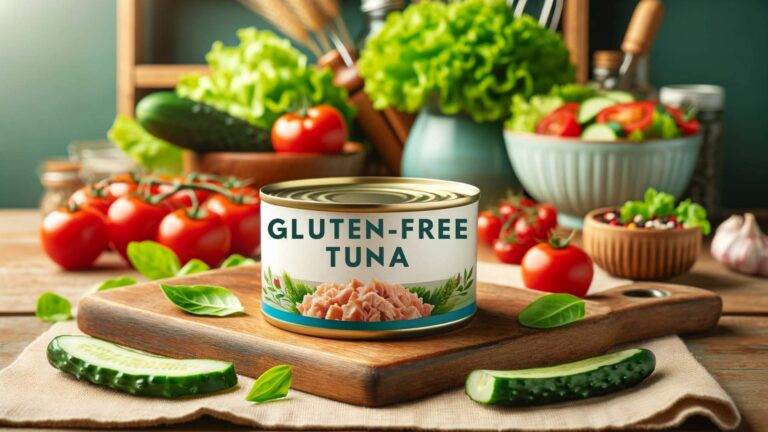Is Quinoa A Gluten Free Food? – All About The Celiac-Friendly Superfood!

Ah, quinoa, the trendy superfood that’s taken health-conscious kitchens by storm.
But wait—is quinoa a gluten free food and suitable for those with celiac disease or a gluten sensitivity?
Short answer: Quinoa is generally safe and gluten-free. With that being said, there’s a “but” you should know about.
Intrigued? Read on!
Key Takeaways
• Quinoa is naturally gluten-free and safe for most people with celiac disease.
• Some quinoa contains traces of gluten due to cross-contamination [1].
• It’s a complete protein, containing all nine essential amino acids.
• Not all varieties of quinoa are created equal; look for certified gluten-free labels.
• Can be a good substitute for gluten-containing grains like barley and rye.
Why Quinoa is Popular in the Gluten-Free Community

Well now, let’s chew the fat about quinoa, the gluten-free wonder grain that’s danced into our kitchens.
Free from grains that contain gluten, including those found in wheat, barley, and rye , it’s a godsend for celiac patients and gluten-sensitive souls.
But here’s the twist! Quinoa isn’t just naturally gluten free. Nope, it’s a protein-packed powerhouse, boasting all the amino acids humans need to thrive.
If you’re searching for alternatives to gluten-laden whole grains, quinoa often fills that void beautifully. It’s versatile and can be used in place of rice or as an alternative to oats.
Speaking of oats, have you considered the nuances of whether oats are safe for celiacs?
How to Buy and Cook Quinoa
When you’re out shopping, remember to buy quinoa that is labeled as certified gluten-free. It’s a small step that ensures you’re not exposing yourself to gluten cross-contamination.
After you get your hands on some quinoa, cooking it is a piece of cake. It’s usually a 2:1 ratio of quinoa and water. Bring to a boil, cover, and simmer until fluffy. Easy-peasy.
Quinoa’s Nutritional Punch
| Nutrient | Per 50 grams of Quinoa |
|---|---|
| Protein | 4.1 grams |
| Fiber | 5 grams |
| Calories | 183 |
| Vitamins | Various (Rich in B Vitamins) |
Just 50 grams of quinoa is a fantastic source of fiber and protein. It’s also rich in vitamins and minerals, making it a dietary superstar for those on a strict gluten-free diet.
If you’re new to navigating the gluten-free lifestyle, making your home a gluten-free zone can make things easier.
Now that we’ve hit the halfway mark, let’s turn up the heat. Are you aware of how butter may not always be gluten-free?
Quinoa’s Versatility in the Kitchen
Quinoa is more than just a fluffy, nutty grain; it’s a culinary chameleon. Sure, we’ve talked about its nutritional prowess, but did you know it also comes in various colors?
White, red, and black quinoa grace supermarket shelves, each with its unique texture and flavor profile.
White quinoa tends to be fluffier and is excellent for porridges or as a rice substitute. Red quinoa holds its shape well, making it a favorite for salads and cold dishes.
Black quinoa? Expect an earthier, sweeter taste—great for unique recipes.
Colors of Quinoa and Their Textures
| Color | Texture | Ideal Use |
|---|---|---|
| White | Fluffy | Porridges, Rice |
| Red | Firm | Salads |
| Black | Crunchy, Firm | Unique recipes |
Now, let’s say you’re a fan of spices. Quinoa, with its mild taste, becomes the perfect canvas for a myriad of flavors.
Turmeric, cumin, or even some good old garlic and onion—these spices can make quinoa sing.
If spices are your thing, especially when navigating an IBS diet, explore how IBS and spicy food interact to make informed choices.
Quinoa’s Environmental Footprint
Here’s something you might not expect: quinoa is actually good for the planet. Native to the Andean region, it can grow in poor soil with little water.
It’s a hardy crop that’s less demanding than other grains, meaning it has a smaller environmental footprint.
Benefits for the Environment
- Thrives in poor soil
- Low water consumption
- Requires fewer pesticides
- Non-GMO
Taking a greener path while also catering to your dietary needs is like hitting two birds with one gluten-free stone. With quinoa, you’re doing just that. It’s a grain that respects both your gut and the planet.
So there you have it—more reasons to love quinoa. From its versatility in the kitchen to its environmental benefits, quinoa isn’t just a gluten-free alternative; it’s an all-around superstar. Make it a staple, and your gut will thank you.
Quinoa: A Love Letter from Earth
Here’s the cool thing about quinoa: it’s not just friendly to your gut but also to the Earth.
Harvesting quinoa is generally considered environmentally sustainable. So you’re not just opting for a gluten-free grain; you’re making a choice that benefits the planet.
Your Body Loves Quinoa
Beyond the absence of gluten, quinoa is a fantastic source of fiber. You can expect up to 5 grams of fiber in a cup of cooked quinoa.
With that fiber comes better digestion, something crucial for people grappling with celiac disease or gluten sensitivity.
Why Fiber Matters
- Aids in digestion
- Manages blood sugar
- Lowers cholesterol
- Sustains energy
But what about protein? Oh boy, does quinoa deliver. It’s one of the few plant foods with all nine essential amino acids humans need.
That’s right; when you eat quinoa, you get a complete protein, offering you more than just a gluten-free alternative.
Is Quinoa a Gluten Free Food? – Final Thoughts
Alright, let’s settle this. Is quinoa gluten-free? You betcha. And it’s more than that. It’s an all-star food that brings a lot to the table, from being high in fiber and protein to having a minimal environmental impact.
For those diagnosed with celiac disease or facing gluten sensitivity, quinoa stands as a beacon of culinary hope.
Just keep an eye out for that certified gluten-free label to dodge gluten-contamination woes. In the grand scheme of a gluten-free diet, quinoa is a win-win. No compromises, just a heap of benefits.
Disclaimer: This content is based on my personal experience as an individual diagnosed with celiac disease and IBS (Irritable Bowel Syndrome) who follows a strict gluten-free diet. This does not constitute medical advice. Please consult a medical professional, nutritionist, or qualified dietitian for personalized, professional advice.






